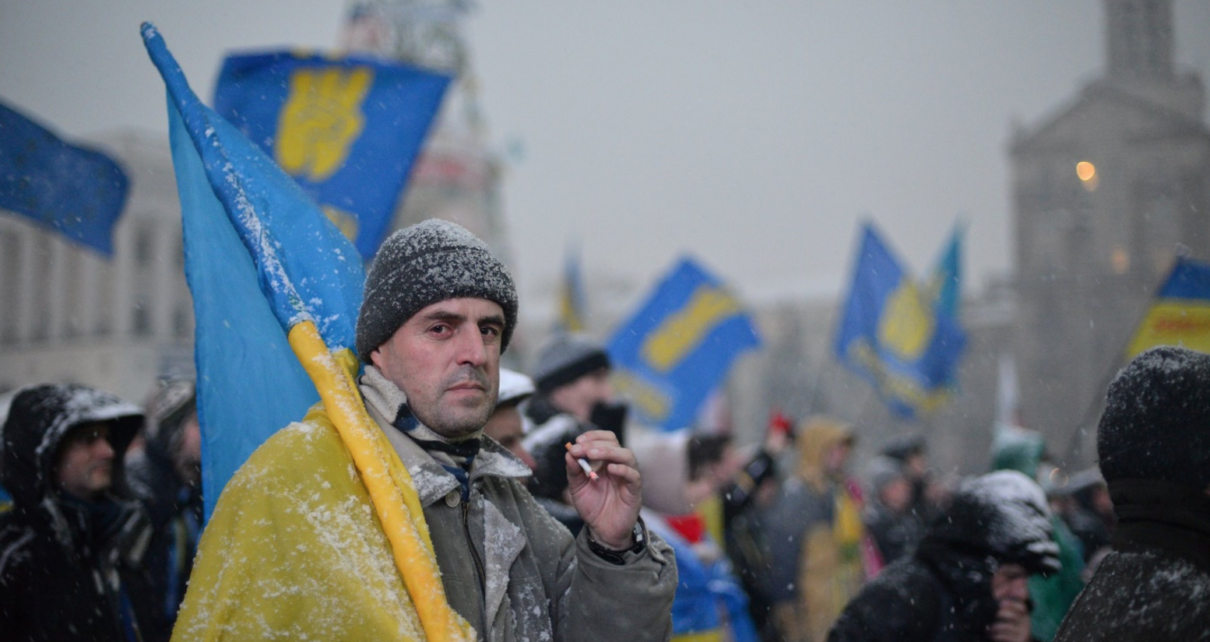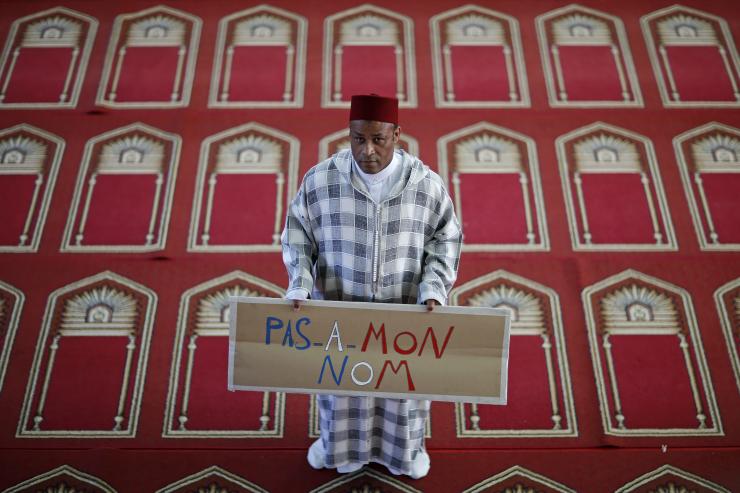The world is fixated on how the crisis in Ukraine will continue to unfold. On 23 February, Russian President Vladimir Putin ordered military operations across eastern Ukraine, with explosions heard throughout its major cities. Nearly 190,000 Russian troops surround Ukraine’s borders, marking the largest offensive mobilization in Europe since World War II. With the reported ceasefire violations in the Donbas and Putin’s recognition of the breakaway regions in Donetsk and Luhansk, tensions between Moscow and Kyiv have erupted into open conflict. US media has made it difficult to distinguish commentary from probabilistic reasoning, and it seems that there is much that remains unheard from the Ukrainian side. Marta Dyczok, Associate Professor of Political Science at Western University, notes that some of the Western media “is not putting Ukraine’s voice into their stories. They have improved a little bit over the past week or so, but if you look at the reporting from December, it was really just the perspectives of Washington, London, or Brussels.”
Given NATO’s increasingly prominent role in the Ukraine crisis, many people may wrongfully perceive the subject of Ukraine’s NATO accession as the root of the conflict. However, this was not the cause of Russia’s aggression. “Putin is trying to make this about NATO, but it really is not,” said Dyczok. “This is about Putin wanting Russia to re-exert control over Ukraine, and he is constructing this narrative that NATO is threatening them.” Putin has previously claimed that NATO is encroaching into Russia’s sphere of influence to justify the uptick in military activity in Eastern Europe. But NATO enlargement was not something that concerned Russia following the Soviet Union’s dissolution, and it did not impede on its signing of the NATO-Russia Founding Act in 1997. As the professor argued, “If you go back and look at the history of NATO and Russia, there were no fundamental changes before Russia started bringing troops to Ukraine’s borders.” NATO took a constructive approach and extended an olive branch by accepting Russia into the Partnership for Peace program.
Dyczok explained that NATO accession was not a significant priority for Kyiv before the Euromaidan, as both sides had reservations about Ukraine joining the alliance. “The issue had been that Ukrainian public opinion was divided over whether to join NATO or not,” the professor explained. But, she added, since Russia annexed Crimea in 2014, public opinion has shifted in favor of NATO accession to deter further incursions into Ukrainian territory: “Support for joining NATO has increased dramatically over the last year.” A recent survey by Ukraine’s Rating Group suggests that support for NATO membership grew to 62% in February. Another poll from December reported that 54% of Ukrainians would vote to join the alliance. “So Putin’s actions have had the opposite effect,” Dyczok said. “Instead of making Ukrainians want to be closer to Russia, the resulting effect is that Ukrainian public opinion is moving more towards NATO.”
So, it was not Ukraine’s ambitions to join NATO, but rather its appeal to align itself more closely with the European Union that was the primary cause of tensions with the Kremlin. “Support for the EU was constantly high, and the Euromaidan protests from 2013 and 2014 were precisely over this issue,” Dyczok averred. Before signing the European Union Association Agreement, Ukrainian President Yanukovych changed his mind, leading to the revolution, with over a hundred deaths and thousands injured. The new president, Petro Poroshenko, finally signed the agreement in late-June 2014. Dyczok claimed that the accord “remains very popular in Ukraine, and they are working towards further cooperation.”
“Russia did not think to join the EU because it has its own economic union, which is eastward-focused,” she continued. The Eurasian Economic Union came into force in early-2015 as Putin tried to redevelop the old economic and industrial network of the Soviet Union. Putin has attempted to sustain this network by keeping Ukraine within Russia’s geo-economic orbit and maintaining Moscow’s soft power in the country. But Dyczok believes Putin’s economic challenges are rooted in more profound problems: “The Russian oligarchs are investing their money in Europe. That is a bit of a paradox as Putin is trying to build a Russia-centered economic union, whereas the rich people in his country are investing in places like London.”
Though Ukraine was once fully integrated into the Soviet economic system, it has reoriented its economy towards Europe over the last 30 years. “Parts of Ukraine’s economy remain integrated with Russia’s, particularly in the energy sector. But if you look at other industries, the trade has shifted,” the professor noted. Since 2012, the share of Ukraine’s exports going to the EU has grown substantially, to 43%, while its Russian counterpart’s has fallen to 8% from 26%. Countries like Germany and China now provide most of Ukraine’s imports, and EU countries source much of its foreign direct investment. Dyczok explained that, “the EU became one of Ukraine’s largest trading partners even before the Association Agreement,” further emphasizing that Ukrainian businesses sought increased cooperation with Europe to continue their existing trade relationship on more favorable terms.
As such, some initially expected Putin not to use an actual invasion but the threat of one to de-stabilize Ukraine’s economy and punish it for its European integration. Now that the standoff has escalated to direct attacks beyond the Donbas, it is unclear to what extent Putin is willing to expand the conflict. Dyczok believes part of the Kremlin’s objective is to de-stabilize Ukraine’s economic and political systems as “a first step towards reasserting Russia’s control.” She explained that commercial airliners terminating flights to Ukraine and a pattern of cyberattacks on Ukrainian banks and government websites are strategic ways to cripple its economy: “If you can knock out the banking system, communications infrastructure, and government systems, then you don’t actually have to march your troops in.” Ukraine’s resilience thus far may have motivated the recent airstrikes in a bid to expedite the economic shocks to the country.
The Ukraine question has seemingly become a part of the larger friction between Moscow and Washington. “Ukraine is [caught] in the middle of it,” Dyczok said,” and Russia is using Ukraine to try to influence Washington.” But with a more vocal and active response under the Biden administration, she believes “we will have to wait and see what impact that has on Russia.”
Regardless of whether Putin escalates the conflict, it has had a lasting impact on Russian-Ukrainian ties. Dyczok explained: “Historically, Ukrainians and Russians have had complicated relations because the imperial legacy is still very present, which led to many Ukrainians feeling close to Russia. But the war in the Donbas has shifted that.” While pro-Russian sentiments were once stronger in Eastern Ukraine, the country has become unified against the threat of foreign invasion. She continued: “Kharkiv, a heavily Russified city in Eastern Ukraine, held a major rally with people waving blue and yellow flags. If you go back to 2014, Kharkiv was a divided city. But those areas that were divided on this issue have become more consolidated.” The professor stated that Putin’s actions have made some perceive Russia as an enemy more than at the onset of the Euromaidan protests. These circumstances have strengthened the Ukrainian national identity.
Disclaimer: Any views or opinions expressed in articles are solely those of the authors and do not necessarily represent the views of the NATO Association of Canada.
Photo: “A protester at Euromaidan” via Flickr (Ivan Bandura) Licensed CC BY 2.0




